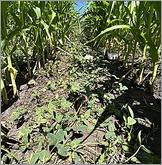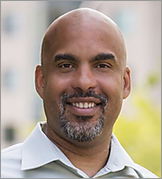News & Publications

Posted: July 24, 2025
Congratulations to Rahel Ghebre, MD, with the Masonic Cancer Center (MCC) on being named the University of Minnesota Medical School’s new Associate Dean for Faculty Affairs. Since joining the University in 2005, Dr. Ghebre has been a leader in gynecologic oncology, global health, medical education… Read more

Posted: July 23, 2024
The University of Minnesota Genomics Center (UMGC) recently acquired three additional AVITI sequencers. UMGC now enjoys the distinction of offering the most AVITI sequencers by any individual center in the U.S. The user-friendly AVITI platform is known for its superior data quality. As a result of… Read more

Posted: July 8, 2024
Angela Birnbaum, PhD, FAES, has co-authored a research article that surveyed nursing home medical directors about current nursing home care practices for residents who suffer seizures. Published in Epilepsy & Behavior, Overview of Acute Seizure Management in US Nursing Homes suggests a lack of… Read more

Posted: July 5, 2024
The Postdoctoral Fellowship program through UMN’s Institute on the Environment (IonE) is breaking new ground to advance interdisciplinary research. Since 2021, IonE has implemented a fresh approach to postdoctoral mentoring. The fellowship program is designed as a “cohort” experience that… Read more

Posted: July 2, 2024
An ongoing research project with UMN’s Water Resources Center evaluates cover crop approaches that may lead to cost savings for producers and a reduction in environmental impacts. In a story posted on the Center’s website on June 28, researchers report on several scenarios studied to determine how… Read more

Posted: June 28, 2024
UMN Associate Professor Bonnie Keeler, PhD, Co-Director of Center for Science, Technology, and Environmental Policy (CSTEP), has co-authored a publication pointing to longstanding inequities in urban green infrastructure research and practices and advocating for a more “just, equitable, and… Read more

Posted: June 24, 2024
Damien Fair, PhD, Co-Director of the UMN’s Masonic Institute for the Developing Brain (MIDB), has co-authored a new publication reporting on the use of brain imaging to reveal neural signals predictive of future depression in youth with family histories of depression. Previous research indicates… Read more

Posted: June 26, 2024
The Masonic Cancer Center (MCC), a Consortium Member Center, has partnered with University of Minnesota researchers and the Mayo Clinic Comprehensive Cancer Center to revolutionize cancer treatment through the use of adaptive T-cell therapies that target various forms of cancer throughout the body… Read more

Posted: June 18, 2024
UMN’s Institute on the Environment (IonE) has awarded $1.9 million in grants to support a diverse portfolio of high-impact research projects. Twelve projects, reflective of the expansion of IonE’s investment areas from one goal to 10, include among others: development of solar farms on… Read more

Posted: June 7, 2024
Consortium Co-Chair Francis X. Shen, JD, PhD, and Consortium Chair Susan M. Wolf, JD, are among co-authors of a new report providing urgently needed guidance on ethical and legal concerns raised by rapidly expanding access to portable magnetic resonance imaging (pMRI) technology in… Read more